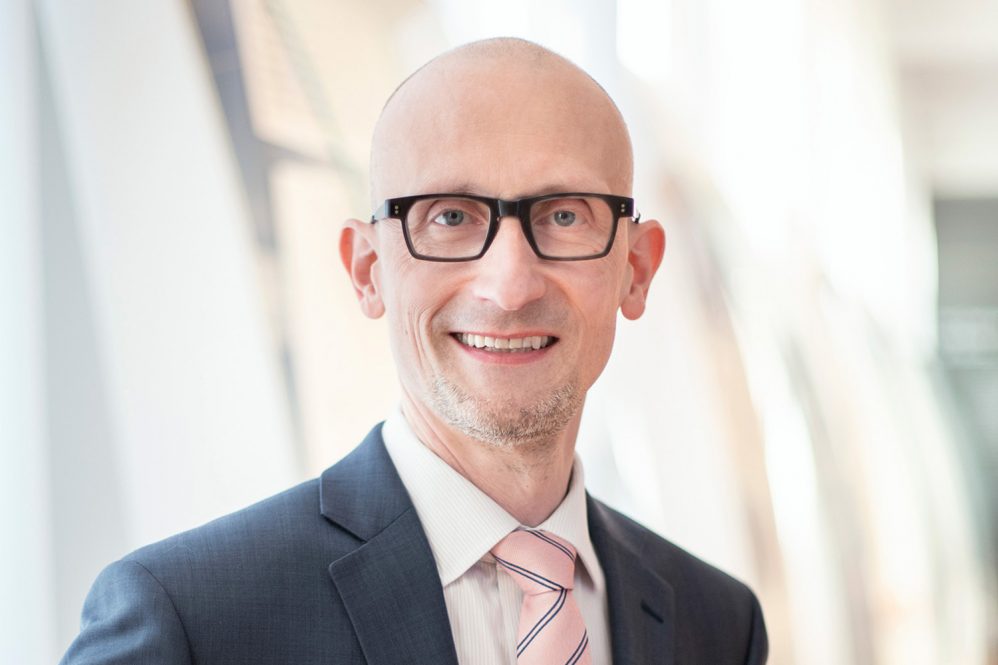A national library is the memory of a country, and Germany’s is no exception. An archive of the country’s tumultuous and violent story since 1913, the German National Library is the storehouse of a past that must never be forgotten.
“The National Library plays a vital role in German society,” says Johannes Neuer ’00 MM, the new director of the Leipzig site, the library’s original home and one of its two current locations. “It holds everything that is published in Germany. And it makes no judgments.”
It wasn’t always so. The library’s founding mission was to collect, catalogue, and make accessible all literature published in Germany. But in 1933, the library was incorporated into the Nazi propaganda ministry. “Undesirable” literature was promptly removed from access.
Following the end of the Second World War, the Leipzig building, damaged by allied bombing raids, became the leading state library of communist East Germany. “Certain publications from the West were strictly off limits to the public,” says Neuer. A West German library was opened in Frankfurt in 1946.
In 1990, the two libraries merged during German reunification. Today, along more than 250 miles of shelf space, sits every book, journal, CD, and map published in Germany from the beginning of the 20th century, catalogued in perfect sequence.
Neuer’s path to the top of the library world, though, was far less organized.
Arriving in Storrs as a German study-abroad student from the University of Mannheim, Neuer was quickly captivated by New England. He stayed on for a Master of Music in double bass performance and immersed himself in UConn’s musical life.
“I played in the wind ensemble, and in the orchestra,” says Neuer. “I discovered new repertoire. And I accompanied other kids from bass class on the piano.”
He also fell in with the art scene in Hartford. After college, he worked for the Wadsworth Atheneum and went on to hold management positions at Chamber Music Plus and the Hartford Symphony Orchestra. “I was able to use the musical education I had from UConn, along with marketing and administrative skills, to venture into cultural management.”



